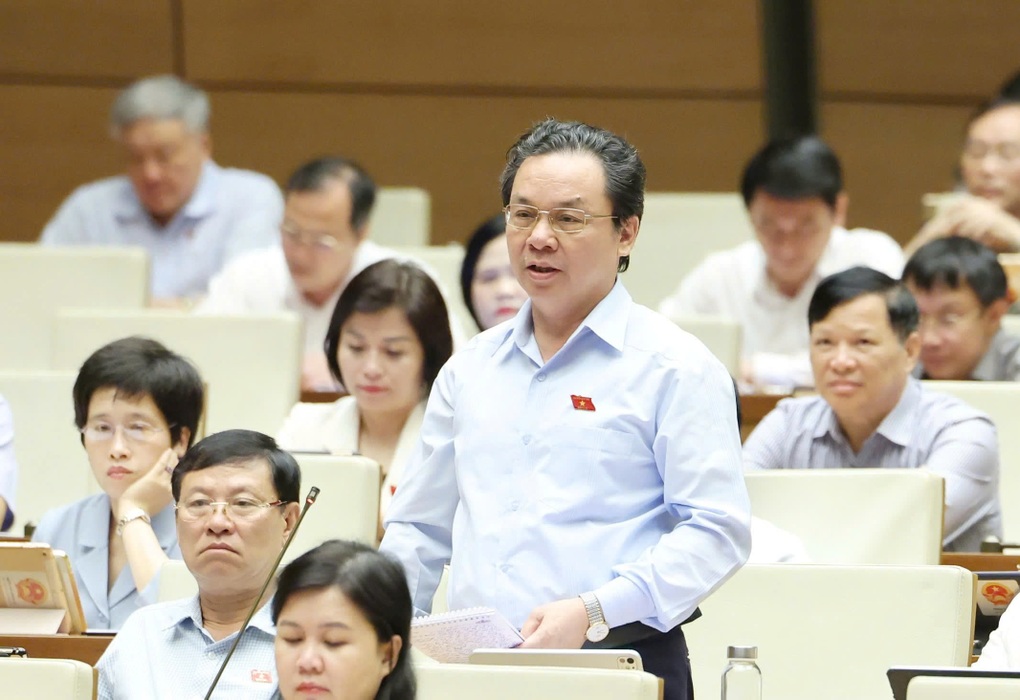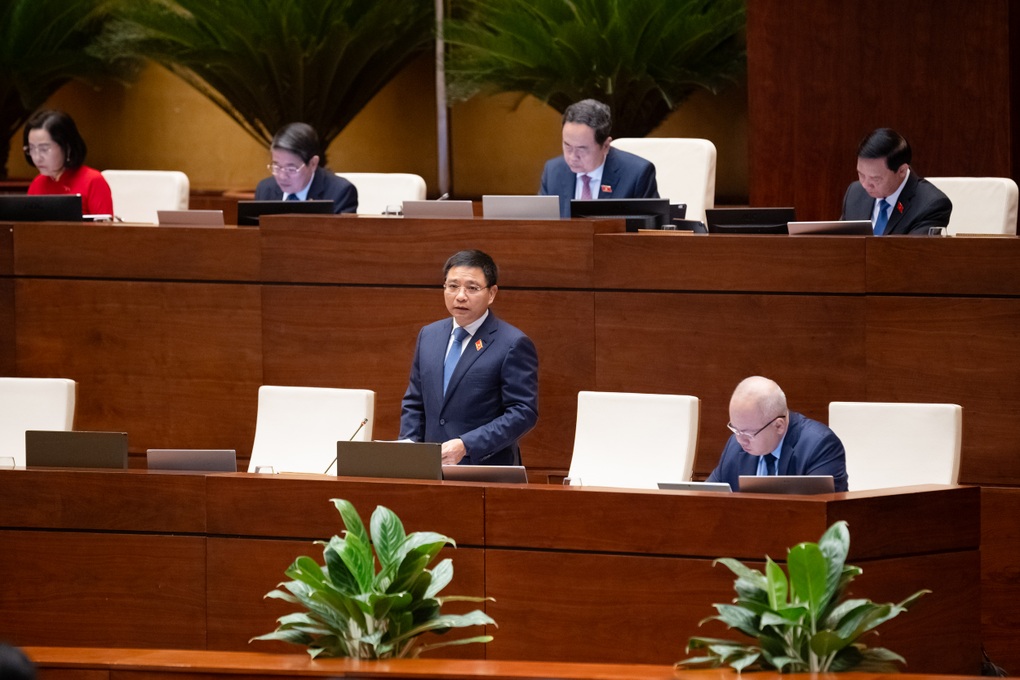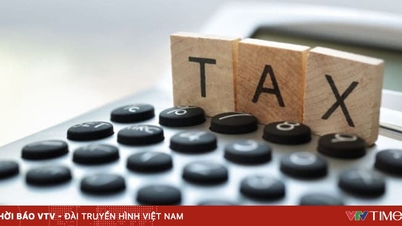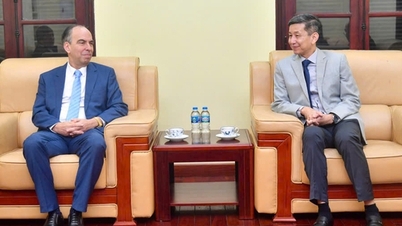Abolishing lump-sum tax is a fundamental step.
In the question-and-answer session this morning, one of the issues of great public concern that National Assembly deputies raised with the Minister of Finance was the abolition of lump-sum tax for business households. National Assembly deputy Hoang Van Cuong (Hanoi delegation) said that Resolution 68 proposed one of the solutions to abolish lump-sum tax. Resolution 98 also decided to abolish lump-sum tax for business households from 2026.
However, this policy is affecting millions of business households with fear. In this session, many delegates proposed to consider postponing this tax policy. This shows that households are not afraid to pay taxes but are very afraid of how to calculate taxes and how to pay them in accordance with regulations.

National Assembly Delegate Hoang Van Cuong (Photo: Pham Thang).
Delegates asked whether the Government had plans and solutions to implement new tax collection after abolishing lump-sum tax so that households would feel comfortable and excited about paying taxes.
Minister Nguyen Van Thang said that Vietnam's tax system is currently assessed to have approached international practices. However, there are still issues related to transparency and this is a major barrier.
Resolutions 68 and 198 have requested the abolition of lump-sum tax. The lump-sum tax mechanism has so far revealed many shortcomings, causing inequality and failing to create motivation for business households to grow into small and medium-sized enterprises.
“The abolition of lump-sum tax is a very correct policy of the Party and State, a fundamental and necessary step to ensure transparency, create equality, promote the transition to the enterprise model and expand the formal economic sector,” affirmed Minister of Finance Nguyen Van Thang.
He said that this policy is in the process of being implemented, affecting millions of businesses. The Ministry of Finance is synchronizing legal and technological aspects to ensure convenience and reduce costs for business households.
The Ministry of Finance is proposing to amend the Law on Tax Administration and the Law on Personal Income Tax, aiming at a new tax management model, simplifying invoices and documents so that business households are not under pressure when converting to enterprises.
Another solution he proposed was to strengthen digital transformation in tax management, apply electronic invoices to collect correctly and fully, reduce time and costs for business households. Third, provide free electronic invoice software, accounting software, promote digital transformation, and improve the quality of public services.
In addition, Mr. Thang said it is necessary to promote communication, training, consulting, and increase guidance for business households to clearly understand the benefits and how to implement electronic invoices and declare taxes.
A representative of the Ministry of Finance said that recently, the media has closely coordinated with the Ministry of Finance and tax authorities to propagate and guide business households.
4 solutions to promote business households to transform into enterprises
National Assembly delegate Thanh Tan (Hai Phong delegation) also asked the Minister what breakthrough solutions would promote business households to transform into enterprises.
The Minister of Finance said that currently there are 5.2 million business households in the country. Statistics show that many business households have large annual revenues but have not yet converted to enterprise models - a potential force to achieve the target of 2 million enterprises by 2030.
In the Law on Support for Small and Medium Enterprises in 2017, there are regulations on policies to support business households in converting to enterprises, but after more than 7 years, the number of business household conversions is not much. The reason is that the cost of complying with the law between business households and enterprises is large. Business households do not fully understand the law, are not familiar with managing accounting books, are subject to lump-sum taxes, and use simpler invoices and documents than enterprises.

Minister of Finance Nguyen Van Thang at the question and answer session (Photo: Pham Thang).
To promote business households to transform into enterprises, the Minister of Finance said the research focuses on four solutions.
The first is to review and complete the legal framework for business households to narrow the gap in management organization and financial accounting regime between business households and enterprises.
Second is to urgently complete legal regulations and abolish lump-sum tax. This is a fundamental solution to make business households' activities transparent.
Third is the exemption of corporate income tax for the first 3 years, exemption of business license fees, when converting enterprises, business households will enjoy more preferential policies than the business household model.
Fourth is to strengthen propaganda to raise awareness and management capacity so that business households can transform their business models.
Source: https://dantri.com.vn/kinh-doanh/ho-kinh-doanh-khong-ngai-nop-thue-nhung-rat-e-ngai-cach-tinh-thue-20250619100520440.htm







![[Photo] Da Nang: Hundreds of people join hands to clean up a vital tourist route after storm No. 13](https://vphoto.vietnam.vn/thumb/1200x675/vietnam/resource/IMAGE/2025/11/07/1762491638903_image-3-1353-jpg.webp)






































































































Comment (0)